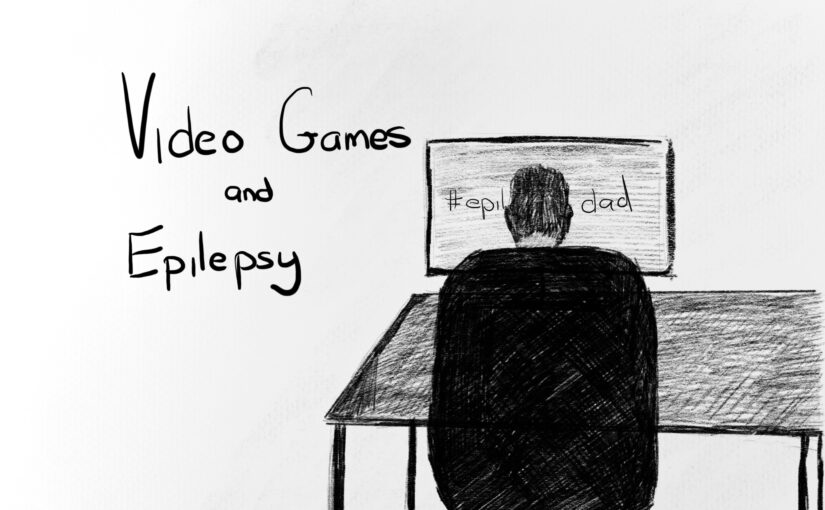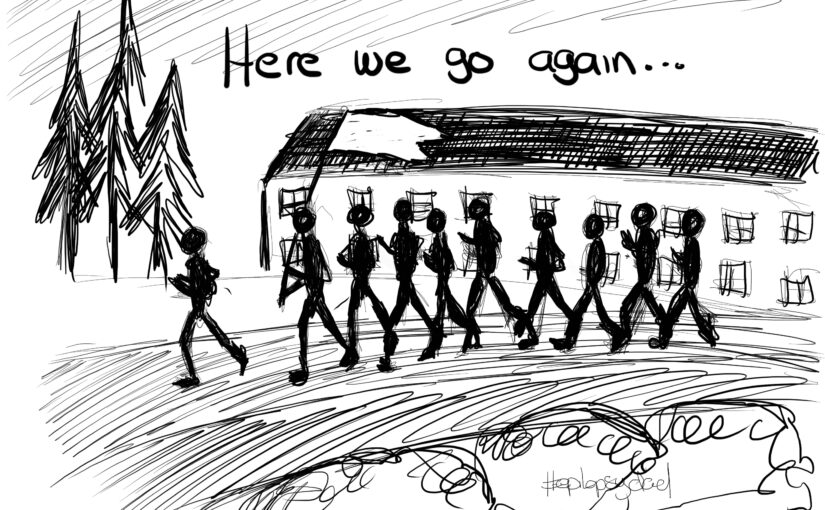My first video game console was an Atari 2600 that my sister and I received for Christmas when I was eight.1 It was magical to toggle the switchbox and have an arcade on my television screen. Within a few months, I had a collection of cartridges. Pitfall, Pac-Man, Donkey Kong. I even had that horrible E.T. game. But Space Invaders was my favorite game, and my mother’s boss and I had a friendly competition every time we visited his family.
I usually won.
As I got older, I became very interested in computers. My first computer was a Mattel (yes, that Mattel) Aquarius, one of the shortest-lived computers ever to go to market. It had a Tron game that I played constantly, even though I had never seen the movie. But it was the ability to program on the Aquarius that got me hooked and, for a long time, my world revolved around computers and my gaming followed suit.
My first online games were on a computer. That was back before there were high-powered consoles connected to the internet. I’m talking the days of dial-up modems. I would spend hours playing an air combat game with a classmate, but I was obsessed with the text-based fantasy role playing game Gemstone on GEnie, an early online service. It was a massively multiplayer online role-playing game (MMORPG) that connected people across the country in a virtual world. Eventually, I moved on to more graphical games like the World of Warcraft, but the ability to connect with other people in these worlds was life-changing and even turned into friendships in the real world. One of my groomsmen at my wedding was someone whom I had originally met in an online game.
My son developed a love for video games at an early age. We had a Wii and loved to play baseball and, especially, bowling. I have videos of him running circles around the house after getting a strike, a huge smile on his face emitting an excited giggle.
As he got older, we began to play video games together, especially sport games like hockey. We’d adjust the settings to give him an edge, and I’d occasionally have to pull my goalie and allow him to score to keep the game close, but it was a fun way to spend time together doing something that we both enjoyed.
Eventually, of course, I stopped pulling my goalie and boosting his settings because he got better. Today, he wins more games than me. The grasshopper has become the teacher. And we’ve expanded to other games. We finished the Halo series, one of my all-time favorites. We played MarioKart every night during the pandemic to get three stars on every course. Today, we play Fortnite and Rocket League together, with an occasional session of Minecraft mixed in.
But I’m not the only one he plays with. This era of powerful PCs and consoles with fast internet has opened up the world and allowed him to play with his friends. He has a friend in Connecticut who plays a baseball video game with him. And he hops on Fortnite after school to play with a few of his friends. Through them, he’s met other friends and he has a little network of gamers. Especially over the summer, it’s helped him stay connected as many families travel and it’s been harder to connect with summer schedules.
In this world of gamers streaming on platforms like Twitch, he has decided that it is the career he wants to pursue. Whether or not that is a viable path for him, it has been a great way for him to explore many aspects of a traditional career: schedules, consistency, marketing, and engagement. He learns by watching other streamers and then practices engaging with his audience, describing his actions and thought process as he navigates a challenge. He loves to teach the “noobs”2 how to get started and basic tactics and tips.
As a technologist and a gamer, it’s been fascinating to see how far gaming technology has come. For my son, it’s become a way to connect, express himself, and find his place in a world that hasn’t always made that easy. Watching him game, teach, laugh, and grow through this medium is beyond anything I could have imagined.
If you want to see what he’s building—and maybe learn a thing or two yourself—you can check out his Twitch stream here: @neurodefender.
Game on.
- Crazy side note, when the Atari 2600 was introduced, it cost $190, equivalent to paying $990 in 2024! ↩︎
- Slang for a newbie—someone who is inexperienced or new to a particular activity, especially in gaming or online communities. ↩︎


